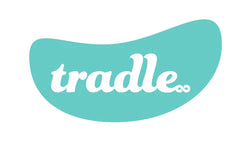As a Canadian business, we recognize that our position comes with responsibility. We believe that we must do our best to show respect to our planet and our community. As a circular business, we do that by reducing the strain on our earth’s resources by facilitating clothing reuse. We also work with local, ethical businesses to ensure the highest standard of labour and environmental practices. But, beyond our business operations, we want to engage with our community about topics that are important to us.
Actively learning and engaging about truth and reconciliation with Indigenous Peoples is of critical importance to all Canadians. This is especially true for most of us that were not given a comprehensive education about Canada’s treatment of Indigenous Peoples and residential schools. This lack of education has been clearer than ever with the recent confirmation of thousands of unmarked graves at residential schools across Canada. This is a living history and we have the resources available to educate ourselves and our children on the topic.
Broaching heavy conversations with kids can be a very daunting task. But as parents, we are the best people in our children's lives to share potentially distressing news so that we can support them and answer questions with compassion. We have compiled resources from Indigenous parents and educators on learning about truth and reconciliation and how to share that learning with kids.
National Indigenous Peoples Day: Talking to our Children
This piece from KidThink shares teachings from Grandmother Pahan Pte San Win. She works with children at schools in Winnipeg and has over 27 years of experience as a therapist to residential school survivors. Grandmother Pahan shares her experience of teaching her own granddaughter about residential schools and how we can talk to young children about this history.
Full Circle for Indigenous Education: Early Years Book Recommendations
This list of book resources for Orange Shirt Day. Orange Shirt Day is recognized on September 30th each year to raise awareness of residential schools and uplift the message that every child matters. The day has also now been designated as the National Day for Truth and Reconciliation. The list shares a short descriptor and what grades each book is most appropriate for.
National Centre for Truth and Reconciliation Education Resources
These education resources are divided into lists of which grades they would be best suited for. They also include adult and teacher resources that include books and movies for adults and even lists of Indigenous comic books that can help introduce kids to different methods of Indigenous storytelling.
How to talk to children about residential schools
This IndigiNews article gathers teaching resources from educators to begin conversations about residential schools. It includes books, videos and other classroom guides for sharing the topic with children of different ages.
Spirit Bear’s Guide to the Truth and Reconciliation Commission of Canada
The First Nations Child and Family Caring Society of Canada put together a youth-friendly guide to the calls to action from the Truth and Reconciliation Commission (TRC) of Canada. The TRC heard from residential school survivors and hosted events to educate and honour the experiences of former students and families. Their 94 calls to action are recommendations for governments, courts, businesses, schools and Canadians to promote reconciliation.
How I Use Indigenous Teachings To Help My Kids Respect The Earth
Indigenous mother Selena Mills shares how she brings Indigenous teachings and traditions into her parenting. These teachings can help to educate your children about respecting the earth as well as introduce them to common values like love and respect through the lens of a different culture.
If you’d like to deepen your learning, the University of Alberta offers a free online course called Indigenous Canada. From an Indigenous perspective, this course explores key issues facing Indigenous peoples today from a historical and critical perspective highlighting national and local Indigenous-settler relations.
As we continue to learn, we will share more resources and learning opportunities with our community. Please comment below on any resources you have benefitted from.

